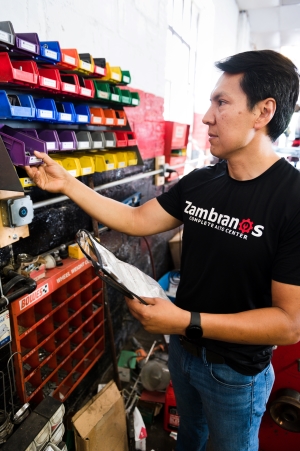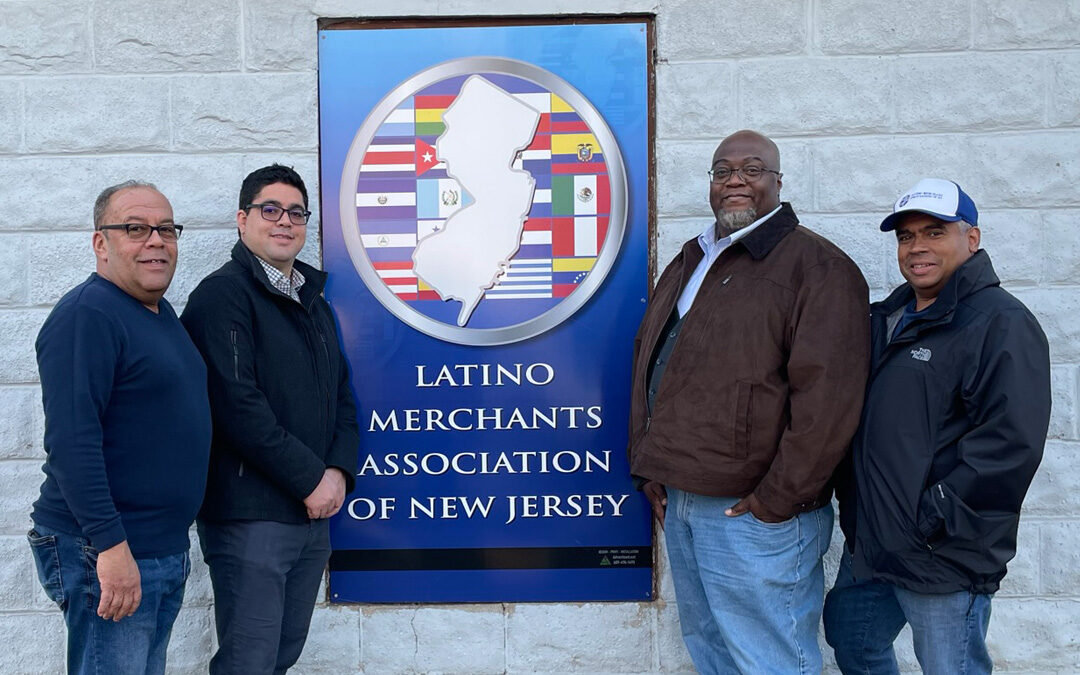Being a small business owner has never been easy. Challenges are part of the territory, but since the onset of the pandemic, they don’t seem to be letting up. Long after COVID-19 shutdowns and restrictions ended, there have been supply chain disruptions, cost increases, labor shortages, and ever-evolving economic struggles.
In small business circles across multiple low-income and minority communities in New Jersey, Rutgers Global Health Institute has been a supportive presence since 2020. In that year, the institute worked with numerous community partners to launch Equitable Recovery for New Jersey’s Small Businesses. Initially, the program was focused on helping small businesses operate safely during the COVID-19 pandemic. Over time, the program has evolved to focus on long-term resilience and has served vulnerable communities in Newark, New Brunswick, Perth Amboy, and Trenton.
“Originally, our focus was recovery – keeping businesses from going under and keeping people safe – but now is the time to build stronger businesses and stronger communities that can withstand future crises,” says Arpita Jindani, manager of health equity, education, and training at Rutgers Global Health Institute. “When local businesses thrive, communities thrive. Ultimately, that means supporting the people who live and work in these communities, helping them to pay rent, put food on the table, and provide access to health care.”
The latest example of the institute’s small business support is a series of educational events the institute has organized in collaboration with the Latino Merchants Association of New Jersey, which hosts the events in its Trenton office, and other community partners that deliver content. Union County Economic Development Corporation, a nonprofit that provides services to help small businesses in many parts of the state, has contributed training in social media and website performance analytics. Chase offered a session on financial goal setting. Sessions often are provided in Spanish, based on the needs of attendees.

Franklin Zambrano is a small business owner in Trenton.
A recent training session included a presentation by Kevin Lyons, associate professor of professional practice at Rutgers Business School–Newark and New Brunswick and a core faculty member of Rutgers Global Health Institute. Lyons runs the Center for Local Supply Chain Resiliency, created at Rutgers in 2022 with funds from the New Jersey state budget. The center works to connect the product and service needs of large, New Jersey-based corporations with local suppliers. Inviting small, minority-owned businesses to the table is an important part of that equation.
“A major concern is access,” Lyons says. “A lot of these small, diverse firms are competing with larger companies, the Amazons of the world, that can provide just about anything. Where do small businesses find their opportunities in such a consolidated world?”
Part of Lyons’s role is to identify and help showcase what is unique about the local businesses competing for bids—for example, a local equipment supplier might set itself apart from national or international competitors by offering maintenance and repair services. At the training session in Trenton, Lyons presented about programs that can help the city’s local businesses win big business contracts.
The Center for Local Supply Chain Resiliency has a statewide mission, starting with Rutgers’ host cities of Newark, New Brunswick, and Camden, as well as Lyons’s own well-established efforts in Jersey City. As a core faculty member who helped Rutgers Global Health Institute form crucial connections in Newark, Lyons is now looking to expand his efforts into Trenton and Perth Amboy, two cities where the institute’s Equitable Recovery program has a presence.
According to Lyons, the work will have significant ramifications for the pursuit of health equity in New Jersey, which is a focus for Rutgers Global Health Institute. When small businesses win big contracts, they are better able to pay their employees a living wage and provide quality health insurance, he says. In addition, strong local businesses support other components of healthy communities, such as access to healthy food. “Just making these businesses economically viable is a big deal, but everything is connected,” says Lyons.
The growing collaboration with Lyons adds a crucial dimension to the institute’s work toward community resilience. “Economic factors are important social determinants of health,” Jindani says. “This collaboration will help small businesses and their communities gain both the social and the financial capital they need to grow stronger and navigate future challenges.”
Top photo: Among the collaborators involved with Rutgers Global Health Institute’s efforts in Trenton are Manuel Hernandez, Alejandro Cruz, Kevin Lyons, and Dimas Reyes (pictured from left to right).

